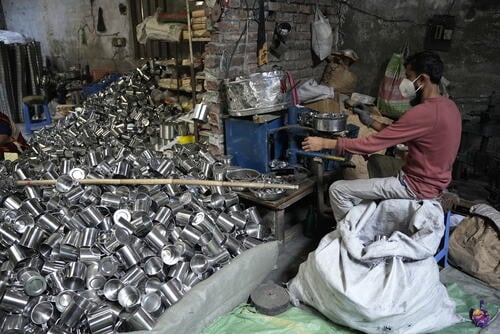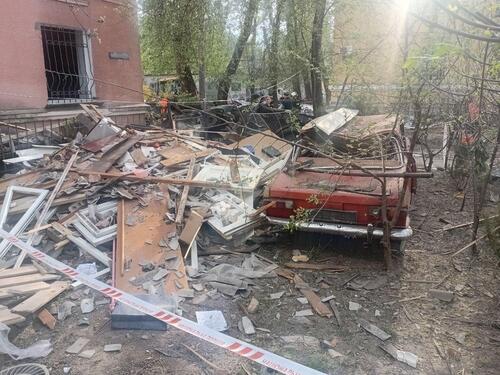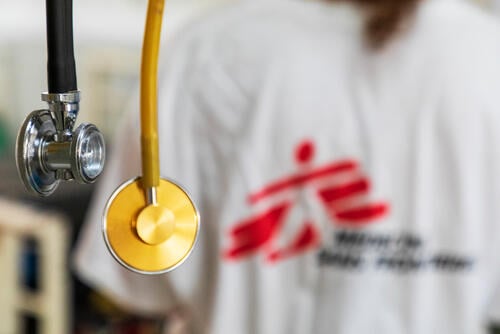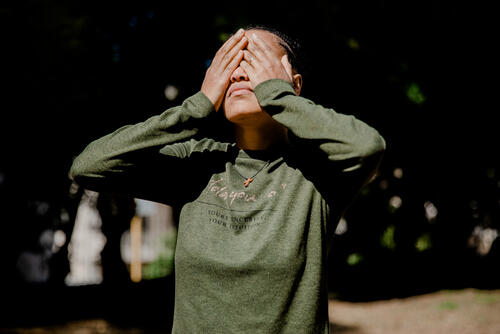The air in Kamrangirchar hangs thick with dust and rings with the clang of machinery. Located in Bangladesh, southeast Asia, just across the river from Dhaka's towering skyline, this four-square-kilometre enclave is a world unto itself. Here, in the labyrinth of makeshift factories, hundreds of thousands of people labour in the shadows.
“It’s like people are born, live, and die here without ever seeing Dhaka,” says Masud Kaiser, an Médecins Sans Fropntières (MSF) health educator who grew up in Kamrangirchar. “This [place] is a gateway to a new life for many, a chance to escape rural poverty. But the cost is often unbearably high.”
Occupational healthcare
Behind the blue gates and down narrow, alleys, a hidden world of sweatshops thrives. Over 10,000 unregulated factories — crammed into basements, perched on rooftops, squeezed into single rooms — churn out goods for the domestic market. Men, women, and even children endure gruelling hours in hazardous conditions, their families their only safety net when illness or injury strikes.
Hanif has spent a decade in a metal cabinet factory, his hands calloused and scarred. “If I get sick, I don't get paid, but I keep my job,” he says. Like many, he's paid by piece rate, his income fluctuating with his output. A bad injury can devastate his family, plunging them into deeper poverty.
The difference between the formal and informal sectors in Bangladesh is like heaven and hell.Gayathrie Sadacharamani, MSF’s medical activity manager
“Every time I have gone to MSF’s clinic and received care there, it has been very good because you get help quickly, and it doesn't cost anything,” says Hanif.
Our clinic opened in 2009, initially addressing the rampant malnutrition among children and evolving to tackle the most pressing needs: occupational health, sexual and reproductive health, and support for survivors of gender-based violence.
“The difference between the formal and informal sectors in Bangladesh is like heaven and hell,” explains Gayathrie Sadacharamani, MSF’s medical activity manager. “Here, there’s no oversight. Workers are worn out and discarded, their labour fuelling a system that often disregards their basic human dignity.”
The impact is far-reaching, rippling through families and communities. Housna Ara sews tunics for ten hours a day, her body aching, her eyes burning. “I have to work, or we won’t eat,” she says. Her fading eyesight, a direct consequence of her work, threatens her livelihood.
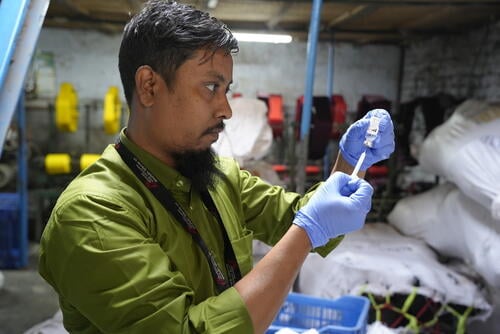
Children, too, are trapped in this relentless cycle. Robin, 15, and his 13-year-old brother are the sole breadwinners for their family, their childhoods stolen by necessity. Suma, also 15, works twelve-hour days in a textile factory, her dreams of school and a better life overshadowed by the immediate need to survive.
Our clinic was nestled in the heart of Kamrangirchar. From first aid training to vaccinations and mental health support, it addressed the multifaceted needs of the community, understanding that health is inextricably linked to economic stability and social well-being.
“In the last ten years, we provided occupational health services to about 77,000 workers in Kamrangirchar, of which 53 per cent were men and 47 per cent were women, and we provided occupational health services to more than 10,000 children,” says Dewan Muhammad Miskatul Mishnad, an MSF occupational health doctor.
Care for sexual and gender-based violence
The clinic provided care to women in Kamrangirchar facing the hardship of sexual and gender-based violence. Initially, reaching these women meant overcoming stigmas and actively seeking them out in their homes and workplaces.
“We've witnessed a profound shift in the community’s awareness and willingness to seek help,” Gazi Farzana Srabony, mental health activity manager in Kamrangirchar. “At the end, women came to us on their own, often secretly, driven by desperation and the hope they see in their neighbours who have received our care. They would say, ‘I came here because I can't tell my family’.”
“We've seen firsthand the impact of accessible services; and we are hopeful that other organisations will continue to build on what we've started,” says Srabony.
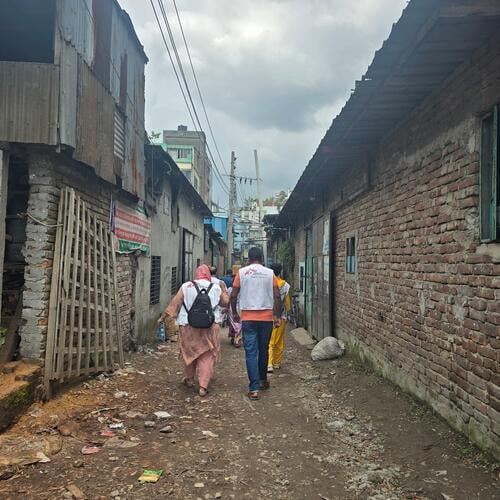
More support is needed
The challenges in Kamrangirchar are immense. The sheer number of factories, the continuous influx of new labourers, and systemic issues mean that the impact of MSF's interventions, while valuable, was limited in scale. We provided essential support, like first aid and safety training, which offered crucial relief in a community where survival is a daily struggle. As we hand over this programme, local organisations and authorities plan to do their best to ensure that workers continue to receive necessary medical care.
Due to a global review and financial reprioritisation, after more than a decade working in partnership with the community in Kamrangirchar, by the end of March 2025, MSF handed over our Kamrangirchar projects.
In Kamrangirchar, MSF provided medical services through clinics in Ali Nagar and Madbor Bazar, supported the 31-bed government hospital with staff and resources, and conducted outreach to improve healthcare access and occupational health awareness in local factories.
Elsewhere in Bangladesh, MSF remains present in the Cox’s Bazar district which hosts Rohingya refugees who have fled targeted violence in neighbouring Myanmar’s Rakhine state since 1978. More than 1 million Rohingya are estimated to live in the confined camps of Cox’s Bazar district, where they arrived after fleeing violence in Myanmar. This includes the more than 60,000 people estimated to have arrived since January 2024, after renewed clashes between armed groups in Myanmar.
Our current intervention in Cox’s Bazar started in 2009, when Kutupalong field hospital was established to serve both refugees and the local community. In August 2017, we scaled up activities and now run nine health facilities across Cox's Bazar district, including three hospitals, three health centres and two specialised clinics.



